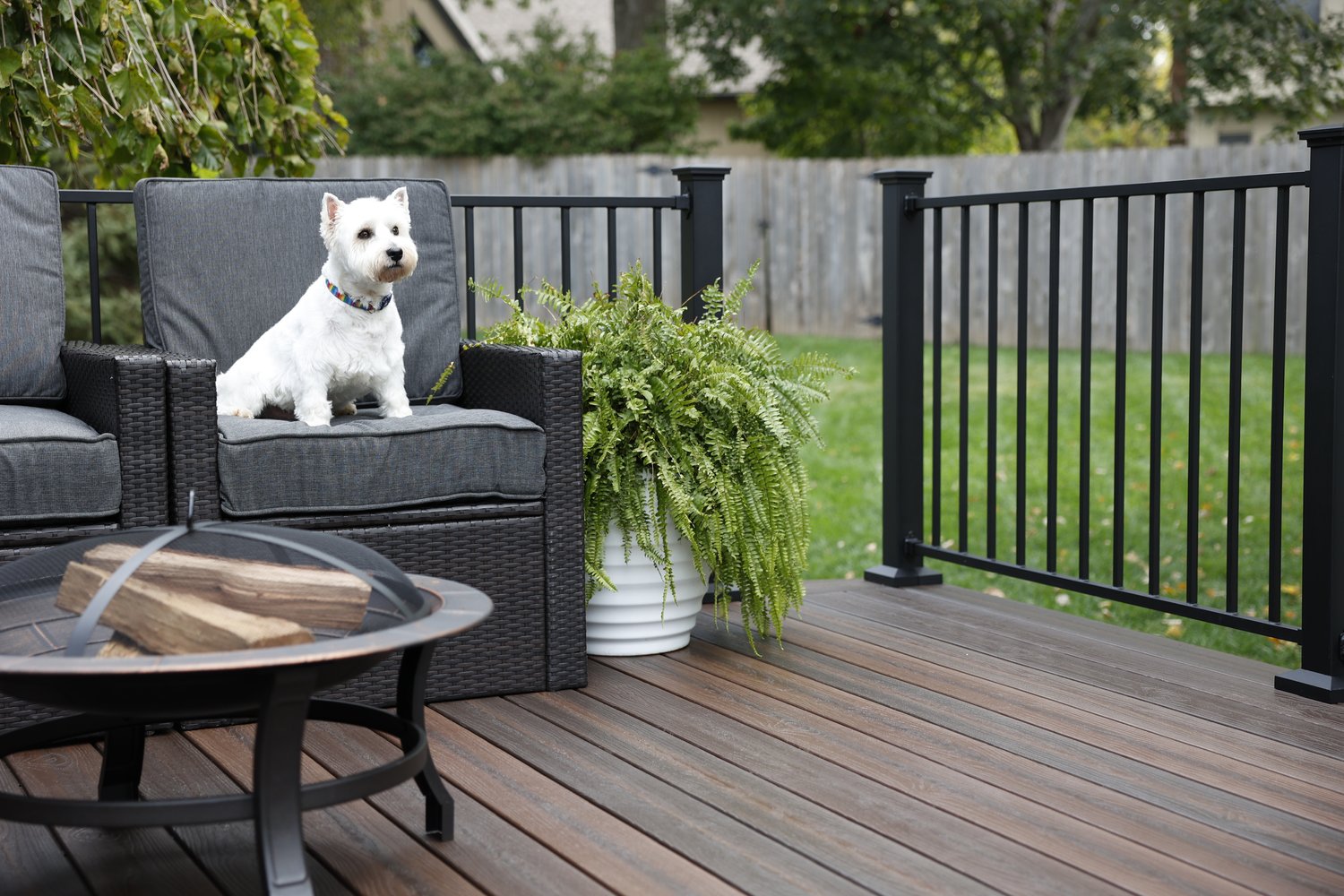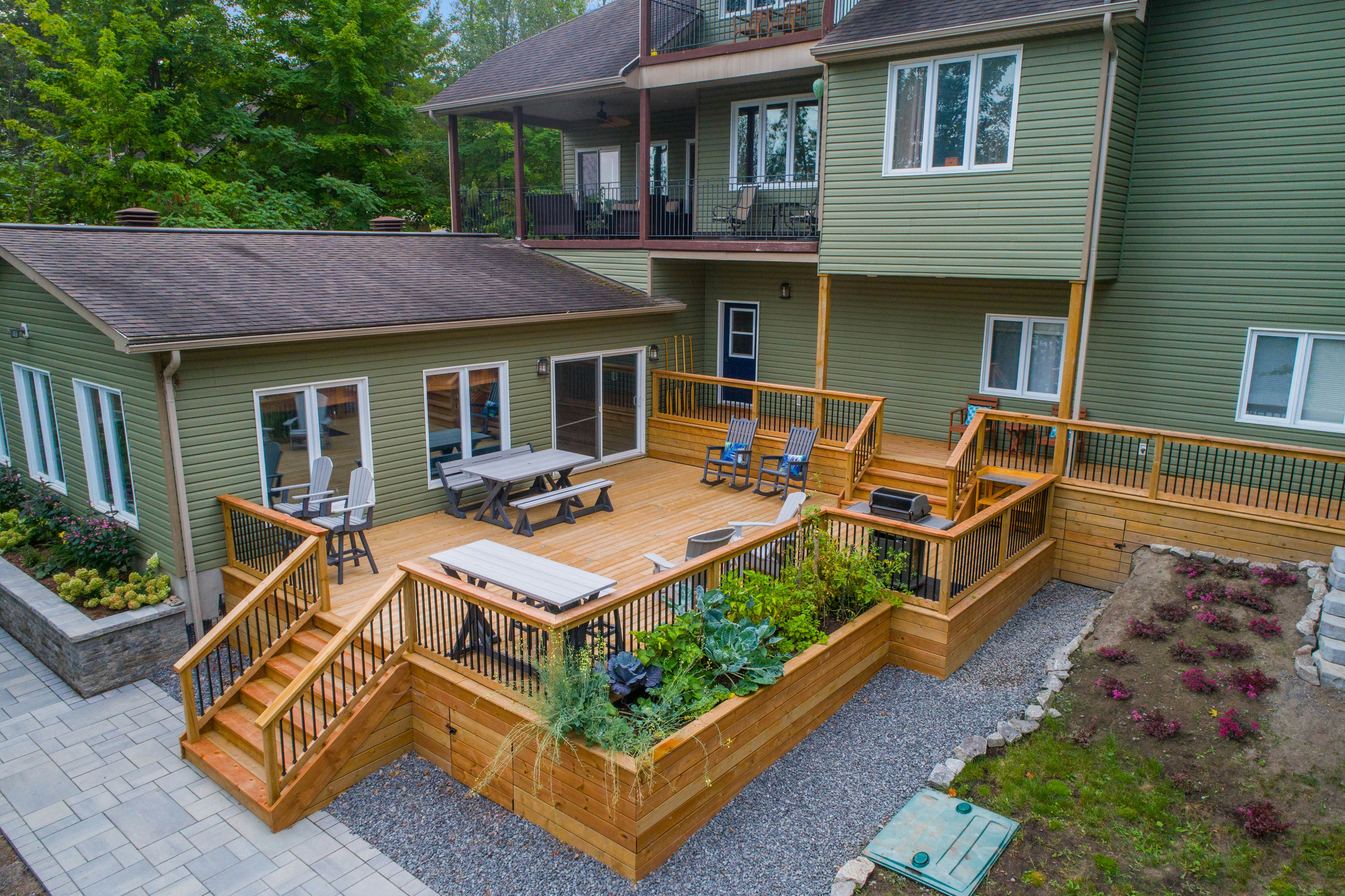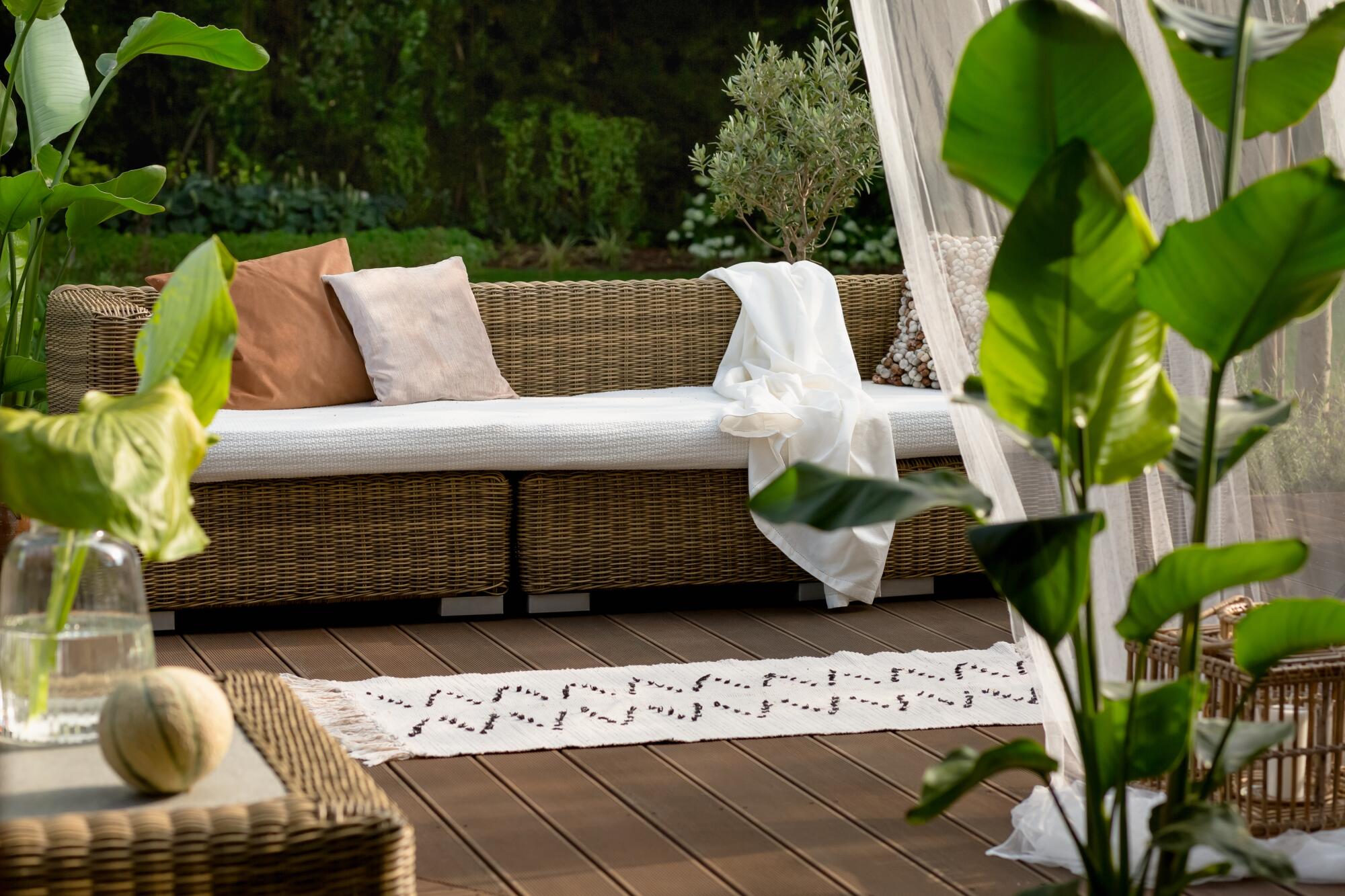When it comes to building a deck, choosing the right material is key to ensuring a long-lasting, low-maintenance outdoor space. No one wants to spend weekends sanding, staining, or repairing a deck year after year. Fortunately, several decking materials today require minimal upkeep while delivering a beautiful, durable surface. Let’s break down the top contenders for both decking, handrails, and framing materials:
1. Composite Decking
Composite decking has surged in popularity due to its durability and ease of maintenance. Made from a blend of wood fibers and recycled plastic, composite boards resist rot, warping, and insect damage, unlike traditional wood. A simple wash with soap and water is usually all that’s needed to keep it looking fresh—no staining required. We prefer the Timbertech composite decking for our clients.
Pros:
Low maintenance: No painting or sealing required.
Long lifespan: Composite decks can last up to 25-30 years.
Environmentally friendly: Often made from recycled materials.
Cons:
Higher upfront cost than wood.
Can get hot underfoot in direct sunlight.
2. PVC Decking
PVC (polyvinyl chloride) decking is 100% synthetic, making it highly resistant to moisture, mold, and mildew. Perfect for areas with high humidity or pools, PVC won’t warp, crack, or fade over time. Plus, it’s lightweight, easy to install, and available in a range of colors and textures. Our go-to PVC decking is the Azeks line becasue of their realistic wood options and 50 year faid and stain warranty.
Pros:
Water-resistant: Great for wet environments.
Virtually maintenance-free: Just an occasional cleaning required.
Lightweight and durable.
Cons:
Less natural appearance compared to wood.
Higher cost than traditional wood.
Low-Maintenance Handrail Options
Handrails often need just as much attention as the deck itself. To minimize upkeep while maintaining style and durability, consider these options:
1. Cable Railings
Cable railings are sleek, modern, and require minimal maintenance. Made from stainless steel, they resist corrosion and require only occasional cleaning to keep them looking great. They also provide a nearly unobstructed view of your outdoor space.
Pros:
Modern and open aesthetic.
Rust-resistant and durable.
Easy to clean with a simple wipe-down.
Cons:
Can be more expensive than traditional wood railings.
2. Aluminum Railings
Aluminum railings are lightweight, highly durable, and available in a variety of finishes. They don’t rust, warp, or require regular painting or staining, making them a top choice for low-maintenance outdoor living spaces.
Pros:
Low-maintenance: Won’t rust or corrode.
Available in many colors and styles.
Lightweight and easy to install.
Cons:
Limited customization compared to wood.
3. Composite Railings
Composite railings are made from the same material as composite decking, so they share its benefits—resistance to rot, warping, and insects. They can also be designed to mimic the look of wood while requiring far less maintenance.
Pros:
Matches composite decks for a cohesive look.
Durable and resistant to weather damage.
No need for staining or painting.
Cons:
Higher cost than traditional wood railings.
Low-Maintenance Deck Framing Options
The structural integrity of your deck depends heavily on the framing material, and choosing a low-maintenance option can prevent future headaches.
1. Steel Framing
Steel framing is incredibly durable and resistant to rot, insects, and moisture. It’s stronger than wood and allows for longer spans, meaning fewer support posts and a cleaner look for your deck.
Pros:
Long-lasting and resistant to damage.
Supports larger decks with fewer posts.
Requires little to no maintenance.
Cons:
More expensive than traditional wood framing.
2. Aluminum Framing
Like steel, aluminum framing offers unmatched durability and resistance to weather and pests. It’s lightweight, rust-proof, and requires almost no maintenance, making it ideal for a long-lasting, low-maintenance deck structure.
Pros:
Rust-resistant and incredibly durable.
Lightweight and easy to work with.
Requires virtually no maintenance.
Cons:
Higher upfront cost compared to wood framing.
By choosing low-maintenance materials for your deck, handrails, and framing, you can spend more time enjoying your outdoor space and less time maintaining it. Whether you opt for composite decking, cable railings, or steel framing, there’s a low-maintenance solution for every part of your deck.
At The Decksperts KC, we specialize in building durable, low-maintenance outdoor spaces designed for maximum enjoyment. Contact us today to start planning your next project!




